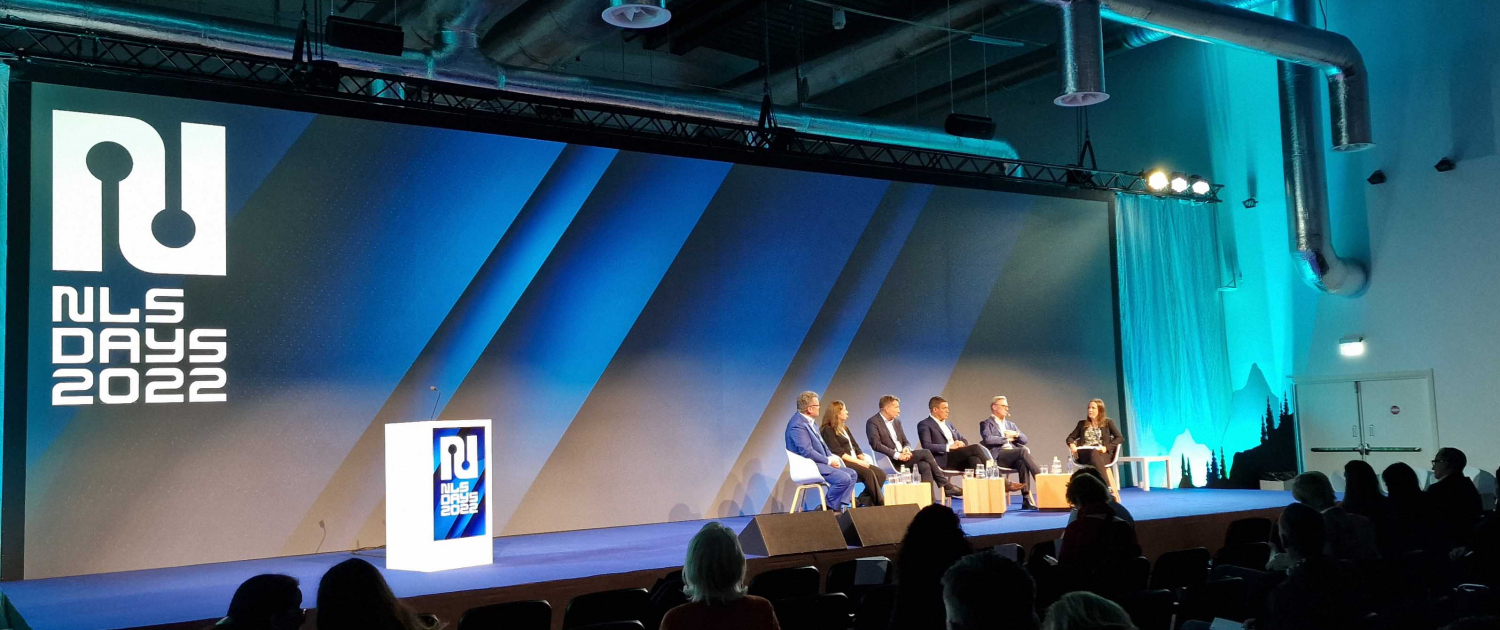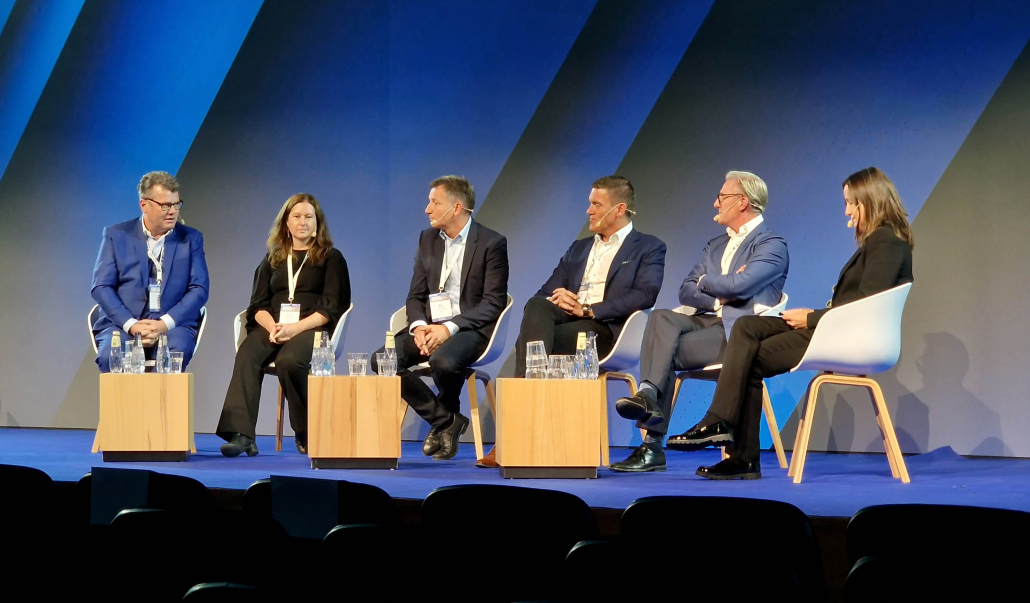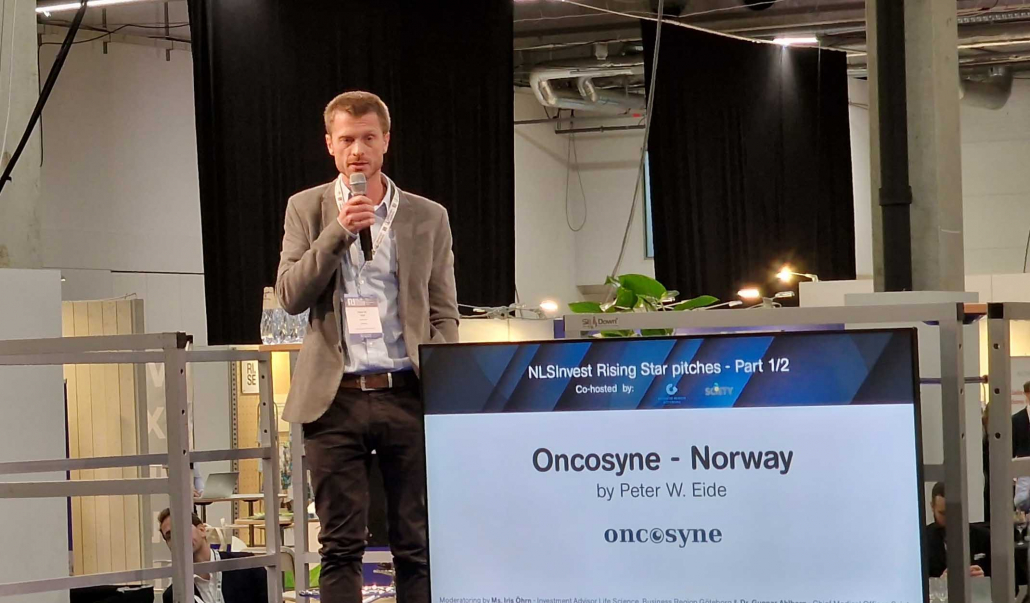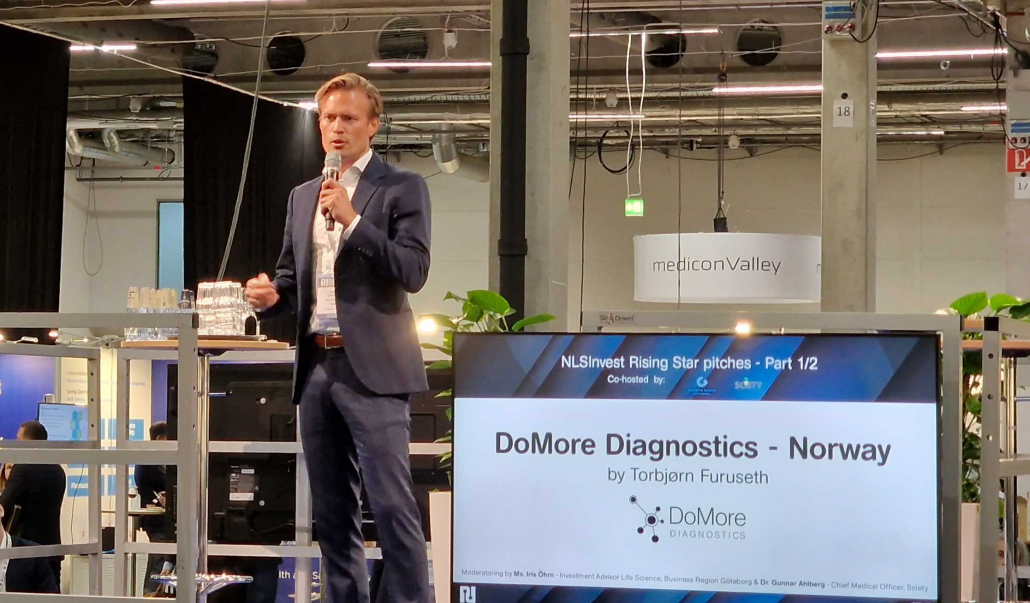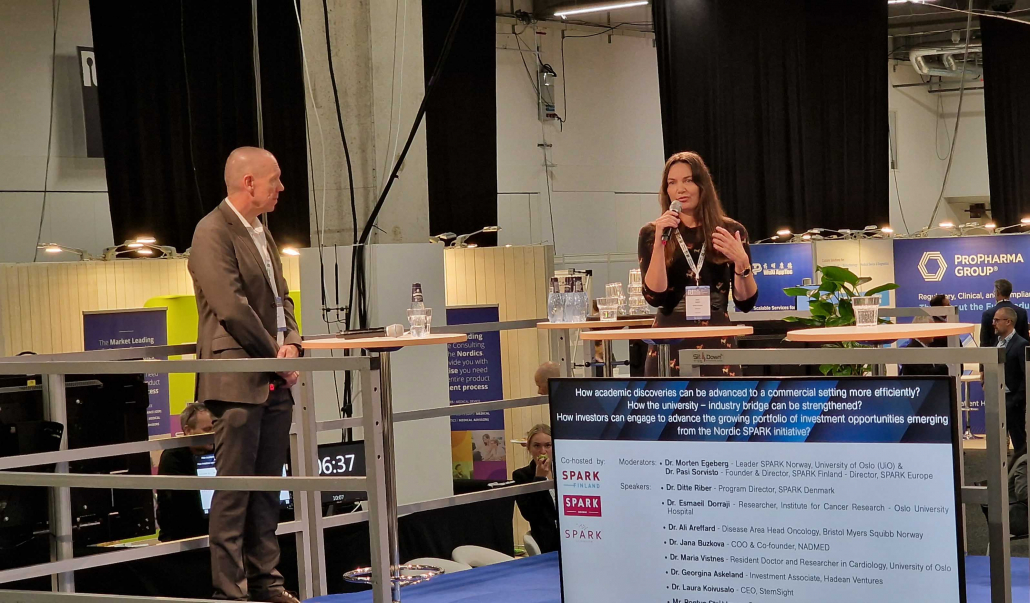15 years of Cancer Crosslinks
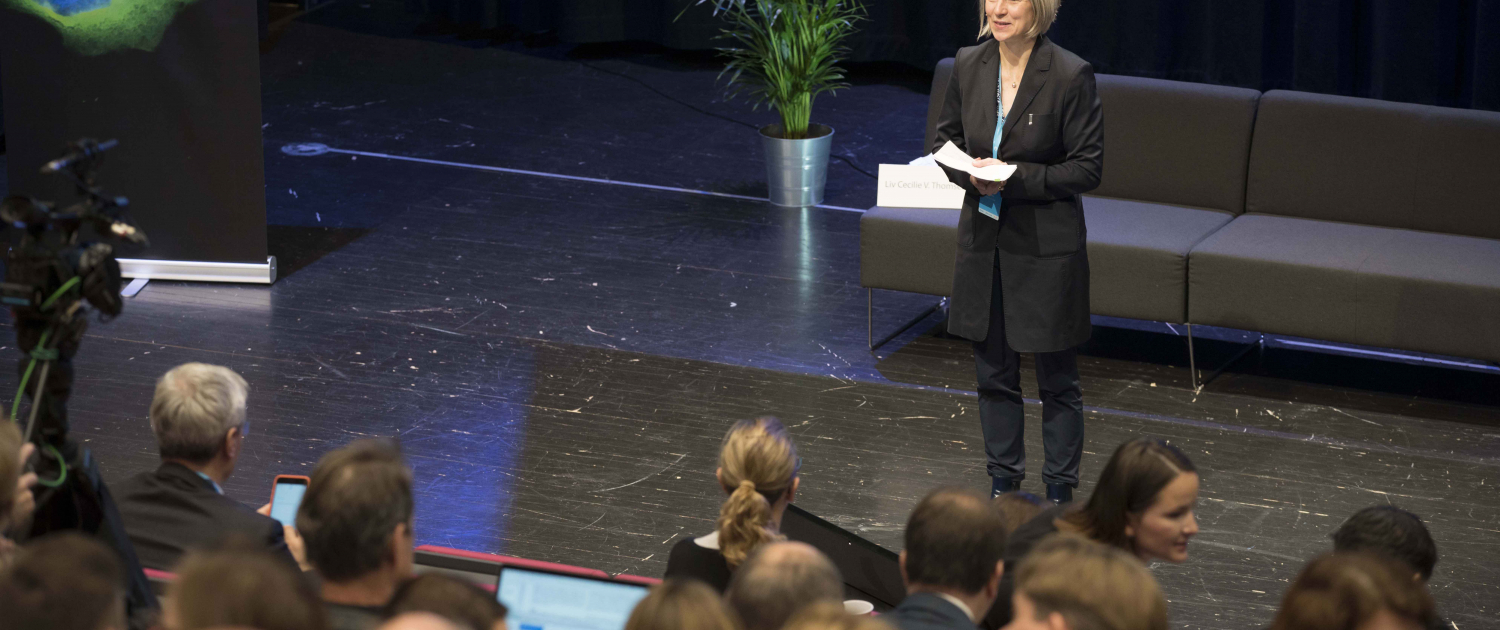
Take a peek behind the scenes in the making of the 15th edition of Cancer Crosslinks.
Cancer Crosslinks, a unique educational forum for the Norwegian oncology community, will take place on 26 January 2023 at Oslo Cancer Cluster Innovation Park.
Activating the community
It has truly “taken a village” to build the annual meeting place Cancer Crosslinks, in the sense that it has been supported by a whole community in oncology.
Cancer Crosslinks was established in 2009, when Oslo Cancer Cluster in collaboration with Bristol-Myers Squibb organized the first meeting of its kind. Since then, the meeting has been supported by 15 sponsors in addition to BMS – all members of Oslo Cancer Cluster.
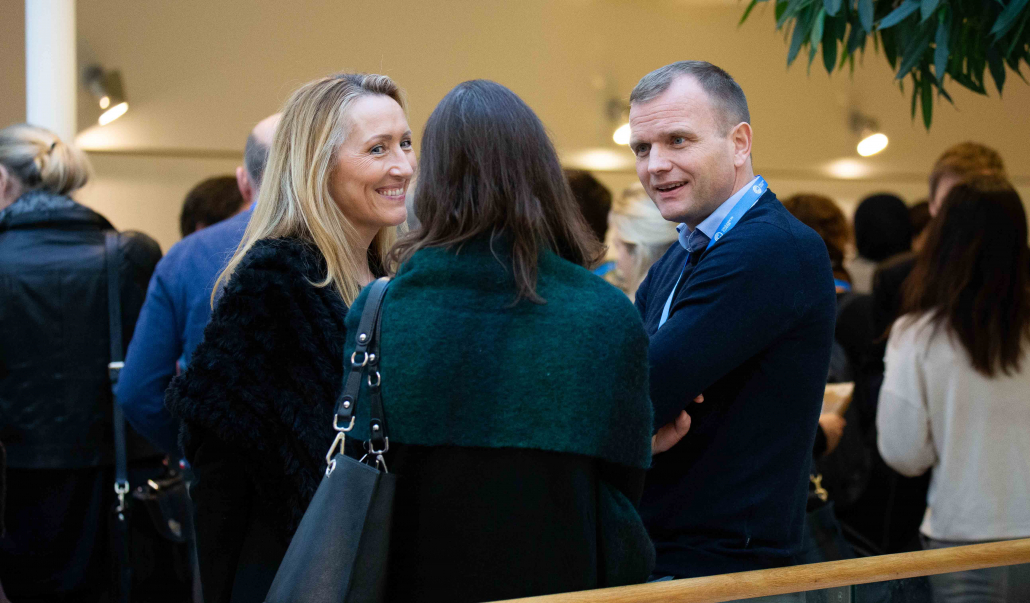
The lively networking is one of the signatures of Cancer Crosslinks, where clinicians, researchers, industry representatives, health officials, and more, meet and make new connections. Photo: Cameo UB
The goal of Cancer Crosslinks is to promote interactions between researchers and clinicians, as well as to encourage translational and clinical research, and new collaborations to advance the development of innovative cancer treatments.
Charlotte Wu Homme, Head of Membership and Events, Oslo Cancer Cluster, and Project Lead, Cancer Crosslinks, commented:
“Oslo Cancer Cluster is committed to supporting the tradition of scientific inquiry by providing relevant and successfully facilitated symposiums for the oncology community. This support, made possible by our members and sponsors, helps us to make a positive impact on society.”
Homme collaborates with the Oslo Cancer Cluster team and student companies from Ullern Upper Secondary School, to ensure the event is delivered successfully.
Latest research developments
The hallmark of Cancer Crosslinks is the full-day educational programme featuring distinguished international and national experts presenting recent advances in oncology.
Jutta Heix, Head of International Affairs, Oslo Cancer Cluster, and Scientific Lead and Co-Founder, Cancer Crosslinks, commented:
“When developing the programme, we start by identifying emerging concepts and recent progress in precision treatment and immuno-oncology, which are close to clinical implementation and of relevance beyond one specific cancer indication. We then reach out to leading experts from the US and Europe who can discuss these topics. Inviting these clinicians and researchers to Norway offers a unique opportunity to stimulate discussions and potential collaborations with their colleagues here.”
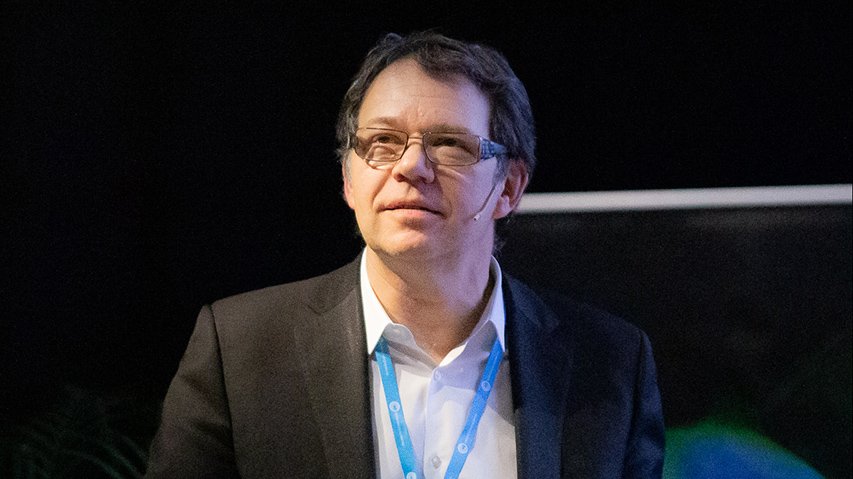
Cancer Crosslinks has attracted renowned speakers from across the world. In 2020, Michel Sadelain, Director, Center for Cell Engineering, Memorial Sloan Kettering Cancer Center, gave a talk.
The title of Cancer Crosslinks 2023 is “New dimensions to the hallmarks of cancer: How is the last decade of discoveries advancing our understanding of cancer biology and transforming precision medicine?”. The idea of The Hallmarks of Cancer was originally coined by Douglas Hanahan and Robert Weinberg in a 2000 paper published in CELL. It has inspired the Cancer Crosslinks programmes since 2009.
“We are honoured that Prof. Hanahan accepted our invitation to give the opening keynote,” Heix added.
Across sectors and borders
Cancer Crosslinks is open to everyone and free to attend, and usually attracts more than 350 representatives from all over Norway. The lively networking is one of the main reasons people participate on-site. The program is also live-streamed, which opens for even broader and more international participation.
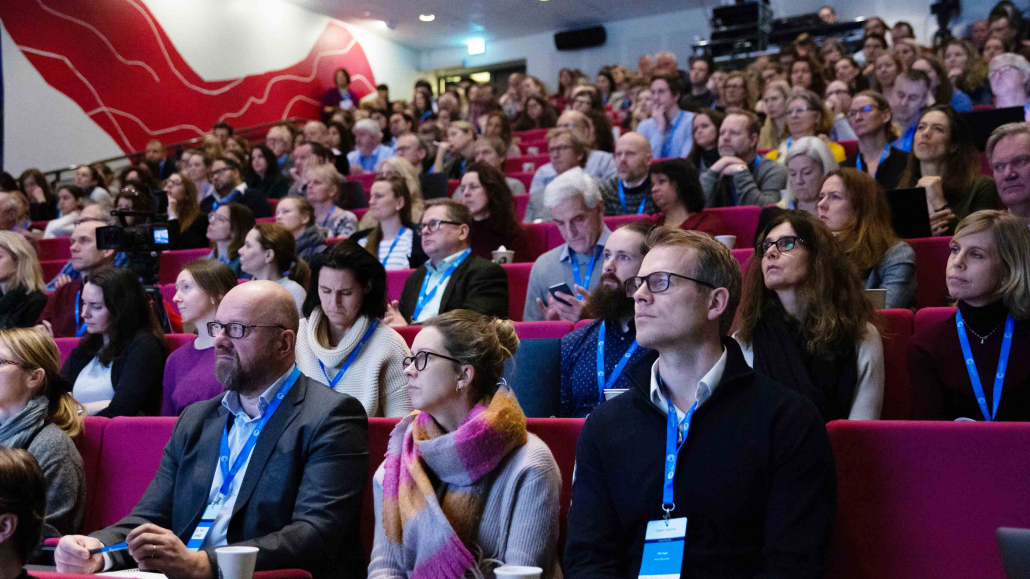
Cancer Crosslinks attracts participants from across Norway and different sectors of society. Photo: Cameo UB
Marine Jeanmougin, EU Advisor, Oslo Cancer Cluster, commented:
“The rise of digital technologies presents an opportunity to support oncology care and address some of the unmet needs in the clinic. We are thrilled to welcome two outstanding young researchers to talk us through their latest work in computational biology and clinical artificial intelligence!”
Cancer Crosslinks has become one of the leading national meeting places gathering oncologists, hematologists, translational researchers, healthcare providers, regulatory experts, and industry representatives.
We look forward to seeing you there!
Cancer Crosslinks 2023: Find out more
- Register for Cancer Crosslinks 2023
- Visit the Cancer Crosslinks website to read more
- View the Cancer Crosslinks 2023 Programme
This meeting series is marking 15 years of excellence based on the continued support of members of Oslo Cancer Cluster, the team behind Oslo Cancer Cluster and the wider oncology ecosystem. Thank you also to Innovation Norway for supporting Cancer Crosslinks through the mature cluster programme.

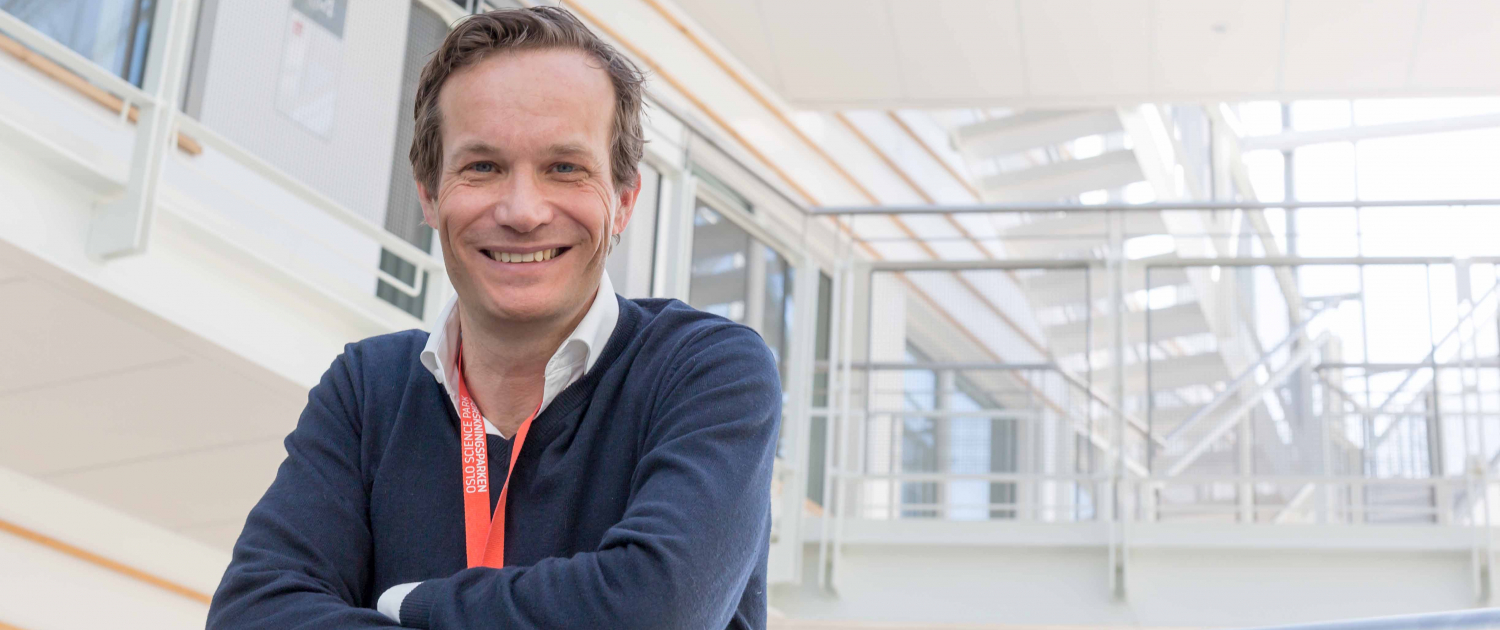
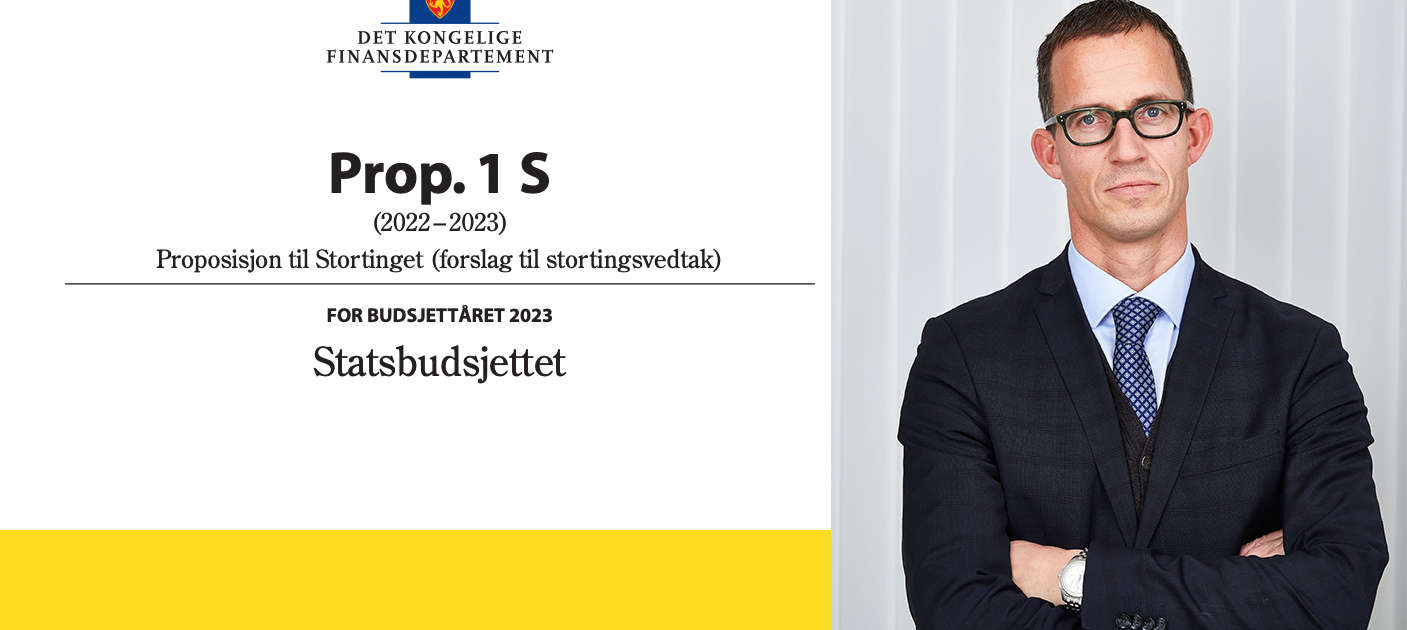 Oslo Cancer Cluster
Oslo Cancer Cluster